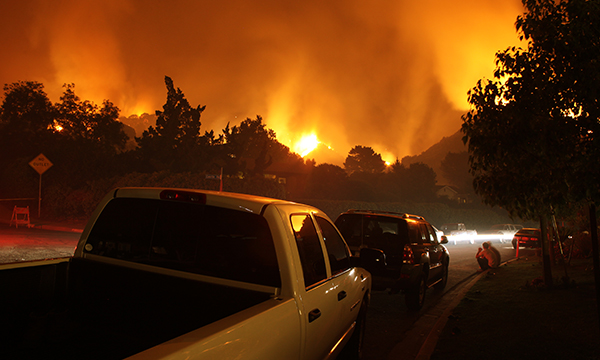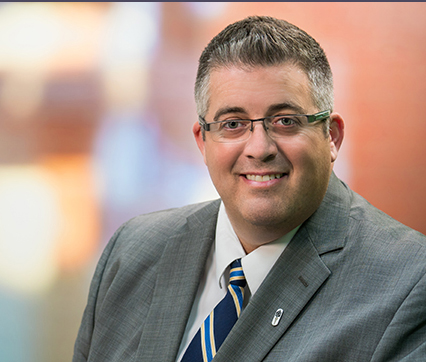
(Pictured: A wildfire in the western United States) Feather River Hospital, in Paradise, Calif., is one of a growing number of medical centers affected by emergency conditions. In the path of the Camp Fire, the hospital safely evacuated all patients—and was damaged, but not destroyed. Feather River is an ARUP client.
As the Camp Fire raged earlier this month, several Feather River Hospital clinicians and patients famously holed up for safety in a residential garage in Paradise, Calif., after their ambulance caught on fire.
The dramatic case of hospital staff driven to emergency action is more common these days, with hospitals in Texas, Puerto Rico, and Florida facing evacuation or emergency conditions in 2017 and 2018, and serious fires ravaging the West Coast in recent months.
Indeed, some hospitals are teaching emergency medicine so clinicians will be prepared to treat patients on the fly or in poor lighting conditions.
If Feather River had been one of the 25.3 percent that haven’t opted in to Connect, it would not have been able to access its test records off premise by laptop. In an emergency situation, Feather River would have needed to take time to call an account executive to put necessary Connect permissions in place. And, in a situation where the hospital’s premise-based system was inaccessible, vital work would have been delayed.
Would your medical center be ready to face such a predicament? It’s difficult to say. But ARUP can help with one thing: We can make sure that with ARUP Connect™, clients can access their test orders and records, order supplies, and otherwise interact online easily with ARUP regardless of where they are, using a simple laptop and password.
As it turns out, Feather River is an ARUP client, and it had a contingency plan—it had previously opted in to access Connect. With all necessary permissions to use the tool already in place, Feather River was able to easily give additional clinicians access to transferred patient testing orders and results after moving its base of operations to a nearby hospital.
“All of this saved a huge amount of time,” says Matthew Baker, technical supervisor, supply II, Client Services. “After all they’d gone through with the fires, being able to speed this along really made a difference.”

Among ARUP clients, 74.7 percent have Connect accounts.
If Feather River had been one of the 25.3 percent that haven’t opted in, it would not have been able to access its test records off premise by laptop. In an emergency situation, Feather River would have needed to take time to call an account executive to put necessary Connect permissions in place. And, in a situation where the hospital’s premise-based system was inaccessible, vital work would have been delayed.
If you’d like to learn more about ARUP Connect or talk with ARUP about opting in for further access, reach us here—or read about Connect here.
Catherine Arnold, Science Communications Writer
Related blog
"Come Wildfire or Visiting Dignitary, Safely Shipping Human Specimens"
Related Magnify article
















